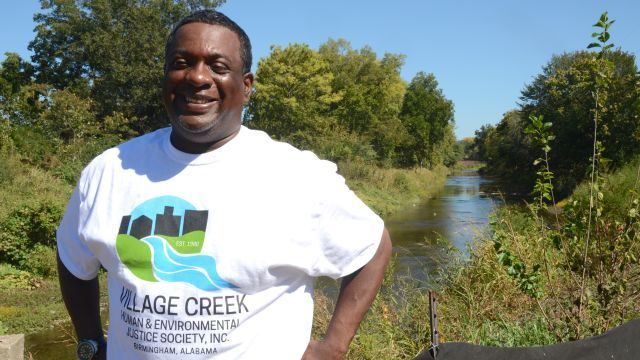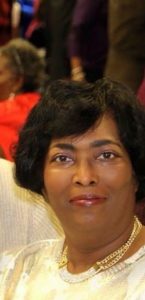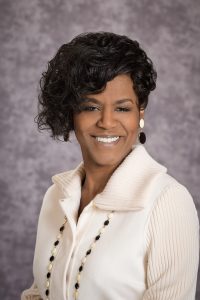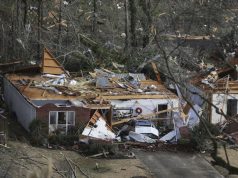
By Jacqueline Gray Miller

Balance is not something you find. Balance is something you create. Thomasine “TC” Jackson and Yohance Owens both use this approach as servant-leaders. Partners with the National Wildlife Federation, Jackson and Owens are addressing water, infrastructure, climate-induced flooding, and public health in Birmingham.
“Public health has always been a priority for me,” said Thomasine Jackson, president of the East Thomas Neighborhood Association. “During this global pandemic, and with partners like the National Wildlife Federation, we are developing and using age-appropriate resources to keep in touch with our neighbors. Each week, I host more Zoom meetings than you can imagine and join conference call after conference call to keep my neighbors informed. Their health is a priority. Further, I’m developing large-font, paper resources for my neighbors who are not tech-savvy. Communication, no matter the format, is key,” said Jackson.
Thomasine Jackson is frequently heard making a statement that may best sum up her attitude toward service: “Thank you for the opportunity to serve.” For years, she has advocated for numerous health initiatives and has served in numerous faith-based ministry programs, fulfilling volunteer needs in areas of music, administration, missions, and health programming. Her priorities as president of the East Thomas neighborhood have included improving parks and schools within the Smithfield community.
“Her deep roots in the community made her an obvious choice as a partner,” said Simone Lightfoot, national director of urban initiatives and environmental justice for the National Wildlife Federation. “She’s that type of community activist that gets the elected officials and partners to come to her. Her house, her porch, her lunch invitation, and now her Zoom meetings. Recently, State Representative Neil Rafferty, Birmingham Police Sgt. Ingram and I gave reports on our progress in the district. For me, it was another opportunity to see her in action. She runs a tight ship and keeps the train moving no matter what.”
Largest Urban Watershed in Alabama
Village Creek Human and Environmental Justice Society, Inc. Executive Director Yohance Owens is also improving the quality of life for Birmingham residents. “All life depends on clean water,” said Owens who promotes environmental conservation and restoration in the largest urban watershed in Alabama. “Village Creek runs 44 miles from Roebuck Springs and the East Lake area through North Birmingham and down to the Black Warrior River. The creek used to flood continually and cause significant destruction for residents along its path. The water still rises today, but flooding is not as bad as it used to be as a result of strategic cleanups and education,” said Owens.
Yohance Owens is frequently heard making a statement that may best sum up his attitude toward service: “Community Service is one of the greatest aspects of our society.” For years, he has advocated for improvements for the entire length of Village Creek to benefit the 300,000-plus residences, businesses, schools, and churches in its watershed.
“Yohance is well aware that these issues will not be resolved

overnight,” said Lightfoot.
Like Yohance, the National Wildlife Federation believes in an education-based approach to long term issues which makes us ideal partners. Partners creating green jobs, internship opportunities and green professional development skills for Birmingham residents to include youth, young adults, and returning citizens to possibly address the concerns in Village Creek.”
Investing in Birmingham
Birmingham City Councilor John Hilliard, District 9, made the connection to America’s largest conservation organization to create direct opportunities for Birmingham residents. Partners include Build UP, the East Thomas Neighborhood Association, Ensley Reimagined, Pneuma Gallery, Slade Land Use, Environmental and Transportation Planning, LLC, and the Village Creek Human & Environmental Justice Society, Inc.
Many of the nation’s greatest environmental challenges and opportunities are found in urban centers. From increasing air and water quality to updating housing and transportation infrastructure, the opportunities are endless to improve the environments where people live. The National Wildlife Federation is committed to addressing the priorities of urban communities. To learn more, visit www.nwf.org
Simone Lightfoot serves as the national director of urban initiatives and environmental justice for the National Wildlife Federation. She oversees the organization’s Birmingham grant efforts and can be reached at (313) 585-1052 or lightfoots@nwf.org.




